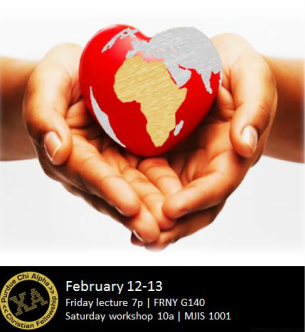In a world characterized by division and conflict, the Bahá’í teachings present a transformative framework that aspires to cultivate an ethos of indiscriminate love for all humanity. This perspective shifts the focus from bias and animosity to a profound recognition of the unity and interconnectedness of all people. Indiscriminate love, as articulated within the Bahá’í Faith, transcends the conventional boundaries of race, nationality, and belief, fostering an inclusive environment in which individuals can flourish harmoniously.
The foundational premise of Bahá’í teachings revolves around the oneness of humanity. Central to this is the idea that all individuals, regardless of their background, are part of a singular, divine creation. This tenet compels adherents to examine their perceptions and biases, urging them to dismantle prejudices that inhibit the manifestation of genuine love and understanding. It challenges individuals to reevaluate the narratives constructed around “us” versus “them,” promoting instead an integrative perspective that values diversity as a divine gift.
In framing this discourse, it is imperative to consider the context of prejudice that often pervades society. Bias can manifest in myriad forms—racial discrimination, religious intolerance, gender inequality, and classism are but a few. Each form of bias serves to create division, diverting attention from the shared goals and aspirations that unite humanity. Bahá’í teachings advocate a conscious effort to recognize these biases within ourselves. This acknowledgment serves as a critical first step toward fostering an environment of acceptance and empathy.
Moreover, the notion of indiscriminate love compels individuals to act beyond mere tolerance. It calls for genuine appreciation of the rich tapestry of human experience. This transcends passive acceptance and encourages active engagement with others, fostering relationships grounded in compassion. Love, as described within Bahá’í literature, is not a mere sentiment; rather, it is an actionable force, manifested through service to others and an unwavering commitment to justice.
The application of indiscriminate love can have profound implications for personal relationships and societal structures. When individuals embrace an ethos of love, they cultivate stronger bonds with those around them. Consequently, communities flourish as members transcend barriers that once seemed insurmountable. This empowerment encourages collaboration and peace-building efforts. It offers a compelling invitation to reimagine societal dynamics that have historically been steeped in animosity.
Furthermore, the principle of indiscriminate love extends into the realm of social justice. The Bahá’í teachings underscore the importance of equity and fairness, positing that no one should suffer due to arbitrary distinctions. This philosophy advocates for systemic change, challenging societal norms that perpetuate injustice. By embracing love for all, Bahá’ís are impelled to engage vigorously in efforts aimed at dismantling oppressive structures, advocating for policies that promote equal rights and opportunities for every individual.
Equally significant is the emphasis on spiritual development within the framework of indiscriminate love. The Bahá’í Faith posits that love is one of the highest virtues and a reflection of one’s spiritual maturity. Nurturing this love demands ongoing self-reflection and a commitment to personal growth. Individuals are encouraged to engage in practices that foster spiritual awareness—such as prayer, meditation, and community service—thus deepening their capacity for love and understanding. This personal evolution is not an isolated endeavor; rather, it operates within the broader community striving for collective elevation.
Critically, the practice of indiscriminate love necessitates courage. It requires the willingness to confront discomfort and to embrace vulnerability. In extending love to those who are different from oneself, individuals may encounter resistance, or they may navigate complex emotional landscapes. Yet, the Bahá’í teachings insist that it is precisely in these challenging interactions where growth occurs. By persistently engaging with a diverse array of perspectives, adherents can unearth shared values and common dreams, enriching their understanding of the human experience.
Globalization further amplifies the importance of indiscriminate love. In an era where cultural exchanges are inevitable, the ability to transcend biases becomes paramount. The Bahá’í teachings encourage individuals to reach beyond borders, cultivating connections that transcend language and tradition. By embracing the universal principles of love and unity, adherents are equipped to navigate the complexities that accompany global interdependence, promoting peace and collaboration on a grand scale.
To encapsulate the transformative power of indiscriminate love, it is essential to reflect on the outcomes that this paradigm shift promises. Adhering to Bahá’í teachings not only strengthens personal relationships but also contributes to the establishment of a more just and equitable world. It piques curiosity, inviting individuals to explore the depths of their own biases while fostering dialogue with others. This journey is not just an individual endeavor; it is a collective undertaking that promises a more unified and compassionate global society.
As we navigate through the complexities of our contemporary world, embracing the Bahá’í principle of indiscriminate love presents a compelling invitation to reimagine our relationships with one another. By committing to love unconditionally and actively engaging in the pursuit of justice, we can honor our shared humanity and pave the way for a brighter future.
